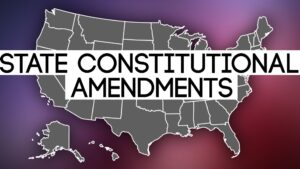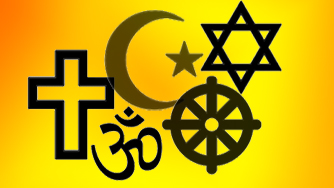Another round of elections came and went this past Tuesday and, as usual, it struck me how many states are floating referendums that change the constitution of the state in question. I think a lot of people might be confused about the subject and I thought I’d try to clear things up.
Every referendum being a Constitutional Amendment is serious threat to We the People.
The Tenth Amendment
It all boils down to the Constitution of the United States and specifically the Tenth Amendment. The text is quite straight forward. The powers not delegated to the United States by the Constitution, nor prohibited by it to the States, are reserved to the States respectively, or to the people.
It’s those last four words that throw a wrench in the plans of all the statists who want to dictate to you how to lead your life. What does it mean? It’s pretty simple. If the Constitution of the United States does not specifically have the power to act on a certain issue, then it is up to the States or the People.
The Word Or
Or. That’s the key word. It’s not and to the people. It’s or to the people. In logic, which the Framers of the Constitution understood, there is an enormous difference between And and Or.
Here’s an example. I was born in St. Louis, Missouri. If I were to say I was born in Springfield and Missouri that statement would be false. With an And statement, both sides must be true before the statement is true. If either side is false, the entire statement is false.
Now, if I were to claim I was born in Springfield or Missouri that statement would be true. With an Or statement, if either clause is true, the entire statement is true.
What does all this Mean?
What the Constitution says is when it comes to powers not specifically stated in the Constitution of the United States, it’s up to the State or the People to decide. The same logic largely applies when it comes to powers for the individual states.
If the state of Missouri passes a law restricting local rules to a CAFO (Concentrated Animal Feeding Operation); that law can be overridden by the People in the form of a local ordinance. So, Missouri says, you cannot restrict CAFO operations. A local community votes to do just that. That Or is a huge part of the equation.
Without a State Constitutional Amendment, the local ordinance overwrites the state law. When the Framers wrote Or they meant it. The law that applies is the one closest to the People. People override State and State overrides the Federal Government, unless it is written into the Constitution. Then it’s the opposite, which is exactly what states are doing.
The Deeper Meaning
The deeper meaning of the state writing a huge number of Constitutional Amendments is that it rips power away from the People. The Framers understood the Federal Government needs to be limited because the people of a state know better the circumstances of their governance. Likewise, the people of a local community know better than the state how to run their government.
Let’s take a quick look at a hot topic these days. The mentioning of homosexuality in schools. It seems perfectly self-evident to me that the people of Orlando, Florida and the people of Baker County, Florida will have different views on this subject.
When the state of Florida tries to dictate to both of those communities how they should treat this subject it steals the rightful authority from those communities.
It’s vitally important to understand if you agree with the right of Florida to restrict Orlando from mentioning homosexuality in school then you also agree with the right of Florida to force mentioning homosexuality in school to Baker County. We give the state power it should not, must not, have.
If Baker County passes a law restricting mentioning such topics in school, they have every right to do so, just as much as Orlando has the right to allow it. This is local control of government and the Framers understood the more the state infringes on local communities, the less local communities want to be part of the Union.
Conclusion
The states are grabbing power from local municipalities at an alarming rate. The state thinks it knows better for Baker County and Orlando both. It doesn’t. The People do.
Tom Liberman


